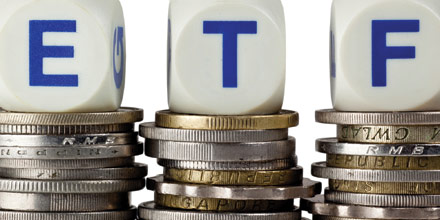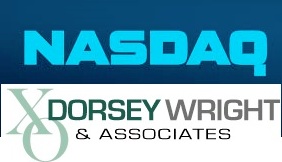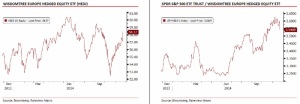If you thought the ETF Issuers industry is getting crowded, you are right. While the barrier to entry is relatively low, the path to traction-measured by AUM can prove rocky, if not populated with land mines. What’s an Issuer to do? Join the Pac-Man Party and sell out what you’ve built to those with a fresh perspective who want to Pass Go and collect the $200 (metaphorically speaking) without having to start from scratch. MarketsMuse gives a shout-out to P&I contributor Randy Diamond for the following update..
“More and more money managers are looking at a way to get into the ETF marketplace,” he said. “The fastest way to do that is through an acquisition; buy something already out there.”
Small ETF providers might have little market share, but that hasn’t stopped them from being acquired by larger active money management firms looking for a quick way to enter or expand their exchange-traded funds business.
Hartford Funds, Radnor, Pa., announced May 17 its purchase of Lattice Strategies, a San Francisco firm known for its smart-beta ETFs. Just a week earlier, Columbia Threadneedle Investments, Boston, said it would acquire New York-based ETF provider Emerging Global Advisors.
The two announcements by money management firms are the latest in a string of deals that began in late 2014.
At least two more ETF providers will be sold in 2016 to money managers, predicted investment banker Donald Putnam, a managing partner at San Francisco-based Grail Partners LLC. Mr. Putnam said likely buyers will be firms with 20% to 40% of assets under management in mutual funds. “A lot of it has to do with pivoting existing mutual funds into ETF clones, a lot of it has to do with taking asset management styles that are not in mutual funds and putting them in ETF form initially rather than in old-fashioned mutual fund form,” he said.
Mr. Putnam wouldn’t say which ETF companies he believes are ripe for acquisition, but Reggie Browne, senior managing director and head of ETF trading at Cantor Fitzgerald LP, New York, said potential acquisition targets include AdvisorShares Investments LLC and WisdomTree Investments Inc., New York.
AdvisorShares, Bethesda, Md., with $1.2 billion in assets under management, is the more typical size of ETF managers being acquired. Publicly traded WisdomTree, on the other hand, is the largest independent ETF company in the U.S., with $42 billion in assets under management.
Jan van Eck, president and CEO of New York-based VanEck Global, an ETF company with $23.7 billion in U.S. ETF assets, said in the past year he has talked to at least 10 managers interested in acquiring an ETF company. “We stay in touch with potential strategic partners and investors, but we don’t see a reason for a transaction,” he said. “We think we can grow sufficiently as an independent company.”
Capture a slice
Todd Rosenbluth, a New York-based senior director and director of ETF and mutual fund research at S&P Global Market Intelligence, said as asset flows continue to move from active management and into areas such as ETFs, active managers are trying to position themselves to capture a slice of the growing business.
“More and more money managers are looking at a way to get into the ETF marketplace,” he said. “The fastest way to do that is through an acquisition; buy something already out there.”
To continue reading, please click here









